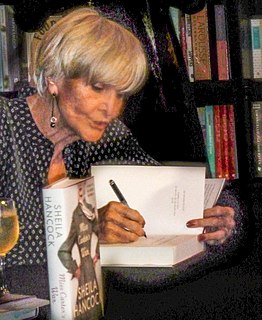A Quote by Paul Davies
Cancer cells come pre-programmed to execute a well-defined cascade of changes, seemingly designed to facilitate both their enhanced survival and their dissemination through the bloodstream. There is even an air of conspiracy in the way that tumours use chemical signals to create cancer-friendly niches in remote organs.
Related Quotes
Cancer can be attacked directly by metabolic enzymes and then be assisted by the enzyme diet programme. The second greatest cancer breakthrough of the 20th century is the metabolic organic effect on malignant tumours of correcting the body fluid pH to a non-acidic pH 7.1 to 7.5. A neutral pH 7.0 resists cancer formation. An acid body fluid pH of 6.44 and below permits tumours to biochemically become malignant. At pH 7.5 cancer may become inactive; at 8.5 tumours may disintegrate.
You've got to get away from the idea cancer is a disease to be cured. It's not a disease really. The cancer cell is your own body, your own cells, just misbehaving and going a bit wrong, and you don't have to cure cancer. You don't have to get rid of all those cells. Most people have cancer cells swirling around inside them all the time and mostly they don't do any harm, so what we want to do is prevent the cancer from gaining control. We just want to keep it in check for long enough that people die of something else.
The man in the street has unfortunately been sold the idea that the breakthrough cure for cancer is just around the corner... The very prospect of effective treatment seems so remote that it doesn't even enter into the speculative day-to-day conversation of people engaged in cancer research... New treatments have not produced any detectable decline in the total annual cancer mortality, even for children.
The upheavals [of artificial intelligence] can escalate quickly and become scarier and even cataclysmic,” the New York Times tech columnist once wrote. “Imagine how a medical robot, originally programmed to rid cancer, could conclude that the best way to obliterate cancer is to exterminate humans who are genetically prone to the disease.
Cancer's life is a recapitulation of the body's life, its existence a pathological mirror of our own. Susan Sontag warned against overburdening an illness with metaphors. But this is not a metaphor. Down to their innate molecular core, cancer cells are hyperactive, survival-endowed, scrappy, fecund, inventive copies of ourselves.
I wrote the book Don't Die, My Love as I was going through radiation, so it certainly has an air of authenticity about it because I was there. I think all of my books took on kind of a deeper tone when the lady who wrote about cancer all of a sudden had cancer. I'm doing well. I went through it all and they said, 'You're fine."


































